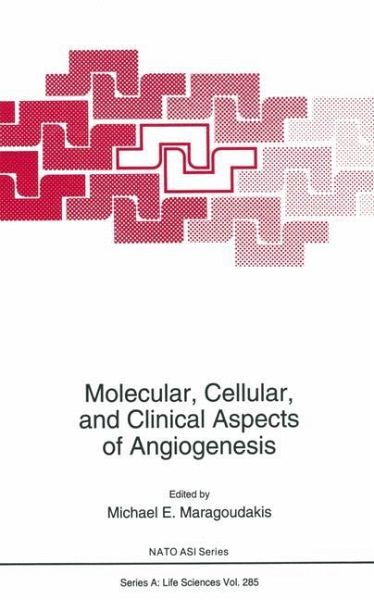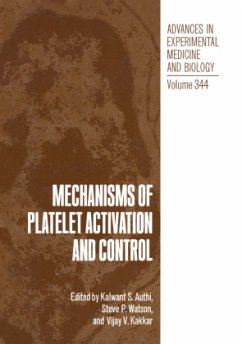
Molecular, Cellular, and Clinical Aspects of Angiogenesis
Versandkostenfrei!
Versandfertig in 1-2 Wochen
77,99 €
inkl. MwSt.

PAYBACK Punkte
39 °P sammeln!
There has been an explosion of research activity related to angiogenesis in recent years, and hundreds of laboratories worldwide are actively involved in many aspects of angiogenesiS. The literature on angiogenesis increases exponentially every year, and more than 16,000 peer-reviewed articles have been published the past 25 years, which are scattered in basic science and clinical journals. The complexity of the cascade of events leading to new vessel formation from preexisting ones has challenged scientists in cell biology, biochemistry, physiology, pharmacology, molecular biology, developmen...
There has been an explosion of research activity related to angiogenesis in recent years, and hundreds of laboratories worldwide are actively involved in many aspects of angiogenesiS. The literature on angiogenesis increases exponentially every year, and more than 16,000 peer-reviewed articles have been published the past 25 years, which are scattered in basic science and clinical journals. The complexity of the cascade of events leading to new vessel formation from preexisting ones has challenged scientists in cell biology, biochemistry, physiology, pharmacology, molecular biology, developmental biology, and other fields. With their multidisciplinary approach and the powerful new techniques that have been developed, the progress in understanding angiogenesis has been impressive indeed. Only 12 years ago the mention of an angiogenic factor caused skepticism. Today we have the complete amino-acid fiequence and their genes cloned for at least 9 angiogenic factors. Many laboratoriesare studying their role in angiogenesis, and several biotechnology firms have a keen interest in commercial developments relative to these molecules. The role of extracellular matrix components in angiogenesis and the interaction of endothelial cells with other cell types such as pericytes, smooth muscle cells, and inflammatory cells have been studied by other groups. This rapid expansion is the result of a realization that in many disease states a common underlying pathology is a derangement in angiogenesis.














